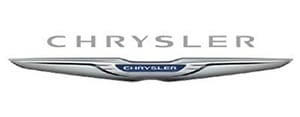
Chrysler oil consumption problems affect many different models including the Chrysler 200, Dodge Dart, Jeep Cherokee, Renegade and Compass, Fiat 500 X and Toro, as well as the Ram ProMaster City.
Owners of these vehicles, made between 2014 and 2020, are facing ongoing problems such as running out of oil after driving as little as 1,000 miles, engines suddenly without warning are stalling or the engine completely shuts down.
Part of the problem is that the vehicle’s internal alert system does not warn drivers when oil is running low in the engine. Most drivers are unaware of what is happening until the vehicle shuts down, potentially leading to a deadly collision or injury crash.
While it may be annoying and costly to keep replacing oil in a vehicle, there may be more serious problems ahead for owners of these vehicles. Indeed, vehicles that have oil consumption problems may experience premature engine failure as this is most often a symptom of serious engine defect.
The vehicles experiencing such problems are all equipped with the 2.4L Tigershark MultiAir 4-cylinder engine. These are known to burn excessive amounts of oil. Additionally, these models have experienced transmission defects and have overall reliability concerns.
Tigershark Engine MultiAir Technology
What happens to these Tigershark engines is the electro-hydraulic “MultiAir” technology used in the pistons and/or rings inside each engine allows oil to escape through the piston’s ring into the combustion chamber. If this happens, the piston rings won’t properly integrate with the cylinders. This causes them to wear down. Subsequently, oil gets consumed during the engine’s compression cycle. An engine without oil lubrication or proper cooling will have premature wear in its internal parts and eventually, catastrophic engine failure.
Since 2015, Chrysler has had issues with excessive oil consumption as well as failures in its internal systems to warn drivers through an oil indicator system. The company was accused of concealing these defects when it issued a Technical Service Bulletin. The bulletin described the issue as “normal.” However, there is nothing normal about this problem. Additionally, the company should really issue a recall because otherwise owners of these vehicles are on the hook to sort out these expensive problems.
Class Action Lawsuit
A class action lawsuit filed in August 2020 against FCA US LLC alleges the automaker’s 2.4-liter Tigershark MultiAir II engine is flawed. Indeed, Chrysler reportedly sold certain models equipped with this engine in its lineup. The lawsuit states that the vehicles are stricken with the excessive engine oil consumption defect. Also, the problem leads to sudden engine shutdown and is a safety issue. The specific models are in the Chrysler, Dodge, Fiat, Jeep and Ram lineup as follows:
- 2015-2016 Chrysler 200;
- 2013-2016 Dodge Dart;
- 2016-2020 Fiat 500X;
- 2017-2020 Fiat Toro;
- 2014-2020 Jeep Cherokee;
- 2017-2020 Jeep Compass;
- 2015-2020 Jeep Renegade; and
- 2015-2020 Ram ProMaster City.
Chrysler Brand
Fiat Chrysler Automobiles, founded in 1952, is known as one of the Big 3 American automobile manufacturers. The company ranks third behind General Motors and Ford Motor Company.
The Michigan-based auto maker sold 1,820,636 vehicles in 2020, down 17 percent due to pandemic issues and closures. FCA Inc. manufactures, and sells or distributes vehicles under the Chrysler, Dodge, Jeep, Ram, FIAT and Alfa Romeo brands.
California Lemon Law Attorney James Johnson

If your Chrysler vehicle has any ongoing oil consumption issues, Johnson Attorneys Group is here to help you. Is your vehicle a safety risk? Perhaps you are footing the bill for costly repairs and or the value of your vehicle has diminished. These are just some of the prerequisites for a Lemon Law claim.
Call us for a FREE CONSULTATION at 855-703-4186. In lemon law cases, our attorneys fees do not come out of your settlement. That’s because the manufacturer is required to pay them directly to us under California Lemon Laws.
- NHTSA Investigates 2022 Ram Pickup, Jeep Wagoneer SUVs Engine Stalling - July 23, 2024
- Tesla Recall to Fix Seatbelt Issue in Model X, S, Y and 3 Vehicles - July 17, 2024
- What are the 4 Latest Recalls for Tesla Cybertruck? - July 17, 2024
